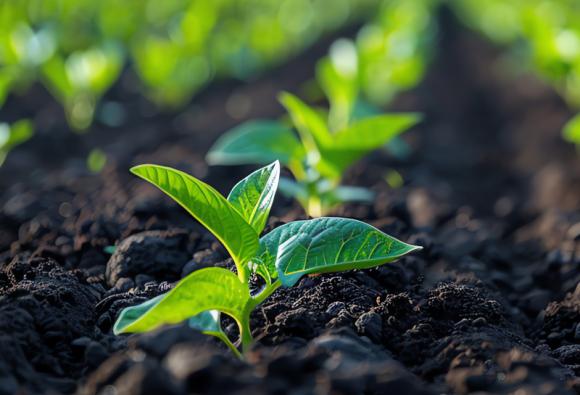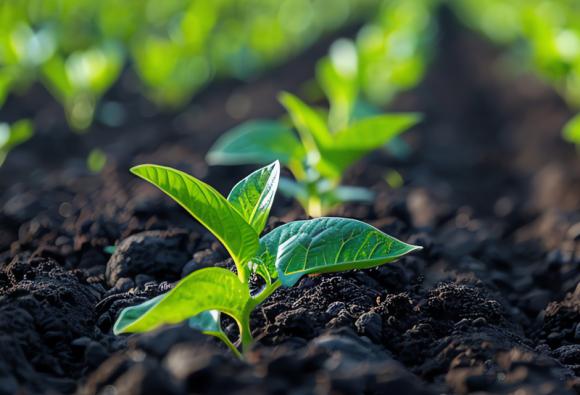Sub-Saharan Africa (SSA) remains the region of the world most affected by extreme poverty, the most dependent on food imports and the most threatened by food insecurity. Paradoxically, it is also the region with the highest concentration of unused arable land and lowest level of fertilizers usage. This is particularly true of the countries of Central Africa, which are heavily dependent on food imports despite their vast arable land. Indeed, except for a few industrial plantations, agriculture in sub-Saharan Africa in general, and in Central Africa in particular, is characterized by low levels of mechanization, little use of NPK fertilizers and improved seeds, little use of irrigation techniques, labor-intensive farming, particularly by women, and the arduous nature of manual agricultural work. As a result, agricultural productivity, particularly that of cereal crops, remains very low compared with other regions of the world. In this context, the intensive use of NPK fertilizers is likely to boost agricultural productivity in Sub-Saharan Africa, particularly in Central Africa, as it has done elsewhere in the world. Indeed, the experience of developed and emerging countries shows that increased agricultural productivity has been the result of intensive use of NPK fertilizers.
However, despite several initiatives to promote the use of NPK fertilizers on the African continent, sub-Saharan Africa has a very low rate of fertilizer application per hectare, well below the fertilizer use target of 50 kg per hectare set at the Abuja African Fertilizer Summit in 2006, compared with the world average of 146 kg per hectare. Indeed, since the stated aim of these initiatives was to make fertilizers more accessible and affordable for farmers on the continent, regardless of their origin, they have served to finance NPK fertilizer imports far more than to encourage local production. It goes without saying that all these initiatives, despite their good intentions, have contributed to making sub- Saharan African countries unfortunately dependent on imported fertilizers, while exposing them to exogenous shocks, particularly in the event of a rise in the price of said fertilizers on the international market, with all the socio-economic consequences that this entails. It is in this sense that the development of petrochemical and fertilizer industries in sub-Saharan Africa in general, and in Central Africa in particular, is of paramount importance to make NPK fertilizers and petrochemicals available, accessible and cost-effective.
In Central Africa, seven countries (Angola, Equatorial Guinea, Cameroon, Gabon, Republic of Congo, Chad and DRC) have proven reserves of crude oil and natural gas, making it urgent to invest to the making of petrochemicals. In addition, Central Africa has proven reserves of potash and phosphate, notably in the Republic of Congo, making it possible to develop new generation regional value chains and special economic zones in fertilizers and petrochemicals. It is in this context that the Economic Commission for Africa's (ECA) Sub-Regional Office for Central Africa and its partners are organizing a webinar, on Thursday December 19, 2024, from 10:00 GMT (UTC), on the theme: "Investing in NPK fertilizer production and petrochemical value chains to deliver green revolution in Central Africa". Join us and our high panel of experts and development partners to clarify the issues at hand towards rising the challenges of transforming agriculture successfully in Central Africa.
The benefits of special economic zones for Asian countries, and the small gains for African countries, raise the need for further understanding of these economic spaces for countries in Africa and Central Africa in particular, while identifying strategies and orientations that should lead to the implementation and development of successful special economic zones in a context marked by the rethink of CAADP and the implementation of the African Free Trade Area (AfCFTA) in a post-covid19 world and ongoing changes.
In Central Africa, the call of Niamey on the 25 November 2022 at the Extraordinary summit of AU Head of states reinforces the urgency of the approach, as cities and regions are called upon to take charge of all endogenous processes that can contribute to their development. It is in this context that the Economic Commission for Africa (ECA), in support of the regional Platform of Farmers Organizations of Central Africa (PROPAC) and in close collaboration with the department of agriculture and rural development of The African Union Commission, Afdb, Agra and other strategic partners of the agriculture world, proposes to organize a webinar on Tuesday, 19 December 2024, as part of the preparatory activities for the shaping of the new CAADP, ahead of the extraordinary summit of AUC Heads of states set for the 9-11 January 2025, Kampala, Uganda.
The objective of this webinar is to provide a platform for exchange and informed debate with the various stakeholders on the importance of paying special attention to investing right in the making of fertilizers special economic zones to manufacture fertilizers and petrochemicals an accelerator of agriculture transformation in Central Africa in the context of the new CAADP adoption and its implementation, the advent of the AfCFTA and industrial and economic diversification master plans (PDIDE).
The webinar will be co-hosted by ECA, PROPAC and their strategic partners. It will consist of a series of questions and answers to lead experts on the subject matters at hand followed by discussions. The ZOOM videoconferencing platform will be used, with the possibility of interpretation in French, English, Spanish and Portuguese.

